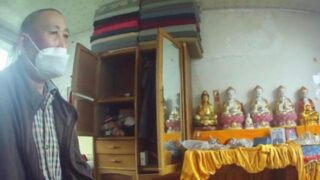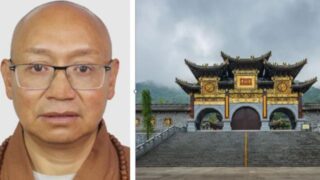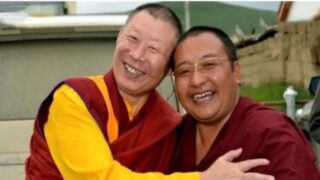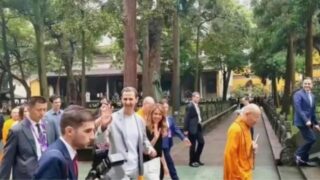By halting approvals for houses of worship, which are required by the Chinese government, more Buddhist and Taoist temples are being shuttered.
The Chinese Communist Party (CCP) is taking a new route in continuing its campaign against religion: Requiring that permits be held in order to worship – and then refusing to grant them.
According to the new Regulations on Religious Affairs, religious venues must be approved and issued a registration certificate by the local government in advance in order to hold religious activities, or else they will be designated as illegal and shut down by the authorities. But as Bitter Winter has learned, government officials aren’t giving them, and then are closing down or demolishing the religious institutions on the grounds of being “illegal.”
One local government insider in Xinzheng city of the central province of Henan revealed that the authorities’ intentional withholding of permits is related to the CCP’s policy of drastically reducing the number of religious venues to curb the spread and growth of religion.
This move is confirmed by an internal document obtained by Bitter Winter, titled Key Tasks and Divisions of Labor of Phase Three of Units Directly Under the County Government. It was issued last year by the authorities of a county under the administration of Luoyang city, in Henan, and it stipulates: “Apart from the reconstruction of demolished and relocated buildings or reconstruction on the original site for safety reasons, suspend approvals of religious venues.”
Local governments across China are taking similar steps in suspending the activities of Buddhist and Taoist temples.


The Jade Emperor Temple, located in Minhe Hui and Tu autonomous county, under the administration of Haidong city in Qinghai Province, was a newly constructed Taoist temple built with a private investment of more than three million RMB (about $445,400). On October 23, 2018, the temple was forcibly demolished by the government on the grounds that it was an “illegal construction.”
According to sources, this temple was located on the builder’s own land. And when it was first built, it had obtained the consent of the local government.


“Before the construction was started, they [the county government] nodded in agreement. Now, when demolishing it, they say that the central government never allows building temples,” a local source said. “During the Cultural Revolution, religious persecution was rampant, right? Xi Jinping is doing the same thing now.”
Buddhist Lingyan Temple in Huludao city of Liaoning Province in northeastern China was also sealed off for the same reason.


On October 12, 2018, government officials ordered personnel to seize all the Buddhist items inside the temple and to seal all the doors and windows with plasterboard. The red pillars were painted with black paint. And the temple’s entrance was completely sealed off with bricks.
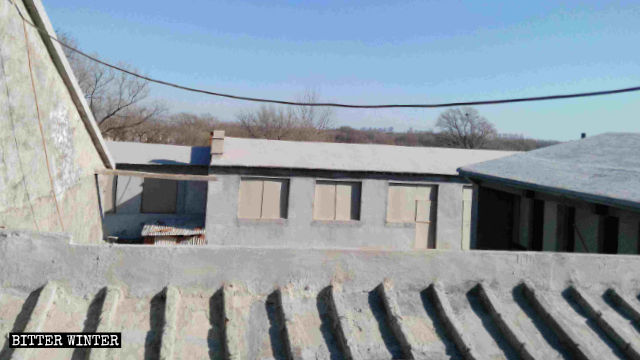

The temple was built with 2.8 million RMB (about $417,900) in funds collectively raised by the temple’s owner and local villagers. A period prior to the temple being sealed off, the owner had requested that the authorities issue a permit for the temple, but government officials never did so.


One local villager said the government doesn’t allow them to burn incense or worship Buddha, so surveillance cameras have been installed on the side of the road leading to the temple, and anyone who is caught going to this temple for worship will be punished.
This situation isn’t limited to Buddhist and Taoist temples alone, either. As Bitter Winter previously reported, many Christian and Catholic religious venues have applied for permits for years on end. Some of them have been applying for as long as 20 years.
Reported by Wang Yichi


